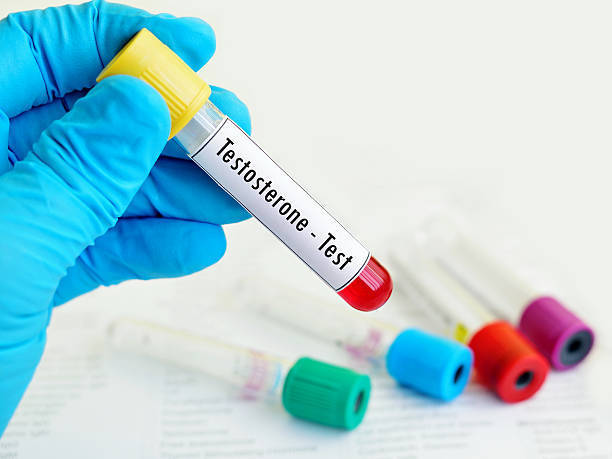
If you're considering Testosterone Replacement Therapy (TRT), you’re probably focused on the benefits—more energy, improved mood, enhanced libido, and better physical performance. But one question we hear often at Tulsi Wellness Club is:
“Does TRT cause hair loss?”
It’s a valid concern. For many men, maintaining a full head of hair is a top priority. In this article, we’ll break down the science behind TRT and hair loss, what causes it, who’s at risk, and how we help our patients manage or prevent it.
The Link Between Testosterone and Hair Loss
To understand the connection, let’s start with the basics: Testosterone itself is not the direct cause of hair loss.
The real player is a byproduct of testosterone known as dihydrotestosterone (DHT).
Here’s what happens:
-
Testosterone is naturally converted into DHT by an enzyme called 5-alpha reductase.
-
DHT binds to receptors in hair follicles, especially on the scalp.
-
In men who are genetically sensitive, DHT causes miniaturization of these hair follicles, leading to male pattern baldness over time.
This means that TRT may indirectly accelerate hair loss in men who are predisposed to androgenic alopecia (genetic hair loss), due to the potential increase in DHT levels.
Does TRT Automatically Lead to Balding?
Not necessarily. TRT doesn’t cause hair loss in everyone. The effect depends on several individual factors:
-
Genetics: If male pattern baldness runs in your family, you’re more likely to notice hair thinning on TRT.
-
DHT sensitivity: Some men have hair follicles that are more reactive to DHT.
-
Age: Older men may already be experiencing hair thinning, and TRT might seem to accelerate that.
-
Dosage and formulation: Higher doses of testosterone can produce more DHT. Some methods of administration may elevate DHT more than others.
At Tulsi Wellness Club, we customize TRT plans to minimize unwanted side effects, including hair loss, by using precise dosing and ongoing monitoring.
How Common Is Hair Loss on TRT?
While hair loss can occur on TRT, it’s not a universal side effect. Many men maintain a healthy head of hair while benefiting from testosterone therapy. Others notice mild to moderate thinning, especially in the temples and crown—the classic areas of male pattern baldness.
The key takeaway: TRT doesn’t cause hair loss in everyone, but it can reveal or accelerate existing genetic tendencies.
What You Can Do to Prevent Hair Loss on TRT
If you're starting TRT—or already on it—and want to protect your hair, you have options. At Tulsi Wellness Club, we help our patients manage hair health proactively with a combination of strategies:
1. Use DHT Blockers (Cautiously)
Medications like finasteride (Propecia) or dutasteride can lower DHT levels by inhibiting the 5-alpha reductase enzyme. These can slow or stop hair loss in many men, but they come with potential side effects like decreased libido or mood changes.
We work with patients to determine if a DHT blocker is appropriate and safe for their unique hormonal profile.
2. Topical Treatments
Over-the-counter options like minoxidil (Rogaine) can help stimulate hair growth and improve scalp blood flow. Topical finasteride is also an option for those who want to limit systemic exposure.
3. Low-Dose, Balanced TRT Protocols
At Tulsi Wellness Club, we believe in using the lowest effective TRT dose to optimize results while minimizing side effects—including unwanted DHT spikes.
4. Regular Monitoring
We monitor DHT levels as part of your ongoing TRT program. If levels are elevated, we can adjust your treatment plan to prevent hair loss before it starts.
5. Nutrition & Scalp Health
A nutrient-rich diet, proper scalp hygiene, and supplements like biotin, zinc, and saw palmetto may support healthy hair growth.
What If You’re Already Losing Hair?
If you’ve noticed increased hair shedding since starting TRT, don’t panic. Hair loss is a gradual process, and in many cases, it can be slowed—or even reversed—with the right plan.
At Tulsi Wellness Club, we take a personalized approach:
-
Full hormone panel, including DHT
-
Family history review
-
Hair and scalp assessment
-
Discussion of goals, risk tolerance, and aesthetics
We’ll guide you through options to balance hormone optimization with hair preservation.
Should You Avoid TRT If You're Worried About Hair Loss?
Not necessarily. If you’re suffering from symptoms of low testosterone—such as low energy, weight gain, poor focus, depression, or low libido—TRT can significantly improve your quality of life.
Hair loss is just one potential side effect—and one that can be managed with proper care. The key is to work with a provider who understands both hormone therapy and aesthetic concerns.
That’s what we offer at Tulsi Wellness Club—a whole-person, wellness-based approach to hormonal health.
Final Thoughts: Does TRT Cause Hair Loss?
TRT can contribute to hair loss in men who are genetically predisposed, but it doesn’t cause baldness by itself. The real culprit is DHT, which may increase with TRT. That said, hair loss is manageable—and often preventable—with the right strategy.
At Tulsi Wellness Club, we don’t believe in sacrificing one aspect of your health for another. We help men feel stronger, more confident, and more energized—while keeping their hairline in mind.
Ready to Optimize Your Hormones Without Losing Your Hair?
If you’re considering TRT and want expert, balanced care that supports your whole health—including your hair—we’re here to help.
Book your free consultation today and discover what personalized, evidence-based TRT looks like at Tulsi Wellness Club.
Dr. Devin Stone
Contact Me


